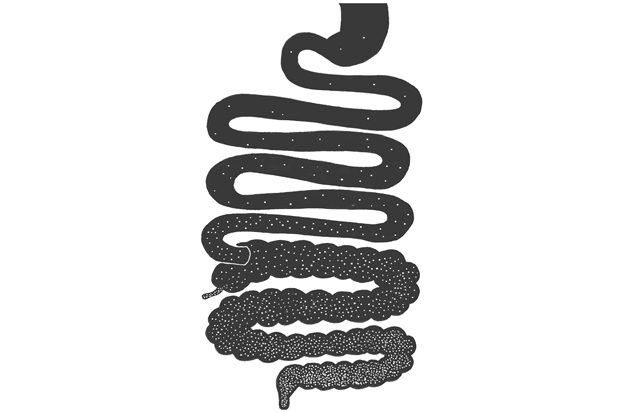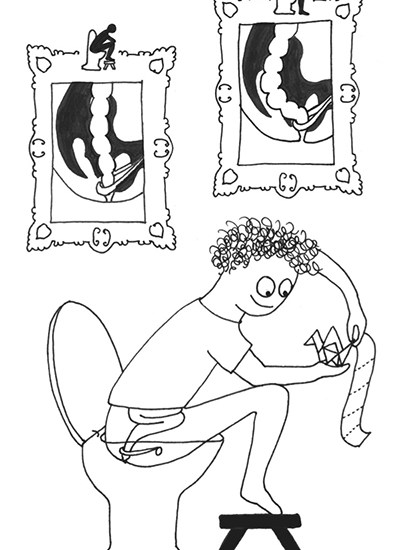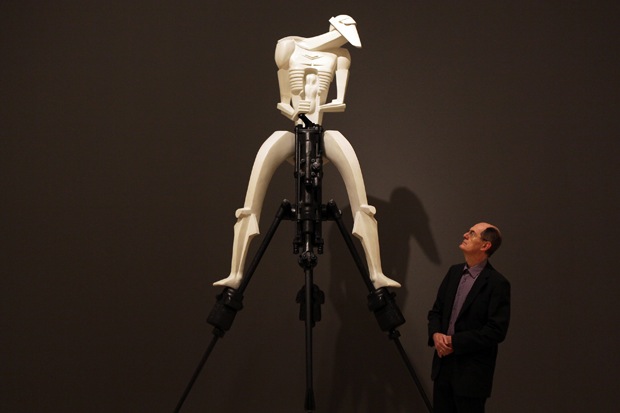Funnily enough, after my editor sent me these three books to read, my guts started playing up. Suddenly, food seemed to go straight through me. At first I wasn’t bothered, but when it didn’t get any better I began to worry. I went to see my doctor. She told me to bring her a piece of poo to see if they needed to stick a camera up my bum. I realise this is probably the last thing you want to know, but that’s the whole point about the gut: no one wants to talk about it, or even think about it, until something goes wrong.
These books set out to break this taboo, and they’re full of fascinating things I didn’t know. I had no idea that reading about crapping could be so absorbing. It brings a whole new meaning to the term ‘toilet book’. These toilet books vary in tone and content but they all share the same central premise: we may think digestion is disgusting but that doesn’t stop it being interesting. And the most interesting thing is, each person’s gut is unique.
The main thing I learned from these books is that our guts are full of bacteria. Only a few of them are bad for you, and some do you a lot of good. Each person has a different set, depending on where you’ve been and what you’ve been up to. Like your internet history, it’s a map of who you are.
Hunter-gatherers had a broad range of bacteria, because of the broad range of stuff they ate. Growing our own food narrowed this range, which was bad news for our intestines. Industrialisation made things even worse. Modern life has reduced the prevalence of bacterial diseases, but it’s made us more prone to allergies. Messing with our bacteria could be at the root of all sorts of other ailments, too. You might guess some microbes are a marker for colon cancer. But did you know other microbes are associated with multiple sclerosis and rheumatoid arthritis? Cause or effect? We’re still not sure.
The thing bacteria hate most is antibiotics. Antibiotics don’t just kill bad bacteria. They kill good bacteria too. This leaves us bereft of the healthy microbes that aid digestion. Farmers have known for ages that feeding antibiotics to animals makes them fatter. There’s growing evidence that antibiotics could make us fatter too. Even worse, the antibiotics we take for minor snuffles breed superbugs which are resistant to the worst diseases. And what about all the antibiotics we eat in artificially fattened meat?
We all know our thought patterns can affect digestion (that’s why you get butterflies in your stomach) but did you know that process also works the other way around? Mice with different microbes have different dopamine and serotonin levels. Change the microbes and you change the way they think. Rats with toxoplasmata (common in cats — and cat owners) are indifferent to danger. A higher incidence of toxoplasmata has been found in reckless drivers.
Other microbes are prevalent in people with autism and schizophrenia. Nothing conclusive — not yet, but food for thought.

This cutting-edge research is intriguing, but most of the practical advice is pretty simple. Don’t take antibiotics unless you’re really ill, and always finish the course. Squatting while you take a shit is actually better for you than sitting on the toilet (seems the French were right all along). Try to eat more fibre — it’ll give your guts a good workout.
Kitchen hygiene is important, but you can make your home too clean. Some men from South America took their pregnant wives to Antarctica, so that their babies would be born there and claim the mineral rights. When they returned home, their babies died. Their chilly birthplace was too sterile to give them the immunities they needed. Children born by caesarean section sometimes suffer comparable (though far less acute) problems: they miss out on all the useful bacteria in their mother’s birth canal. This is largely uncharted territory, and we’re only just beginning to find out about it. ‘We are not individuals, we are ecosystems,’ says Rob Knight, of the 100 trillion microbes that live inside our gut.
Of all these authors, I found Knight the most readable. He makes some amazing conceptual leaps. Giulia Enders has a warm and simple prose style and her sister’s illustrations are delightful. Justin and Erica Sonnenburg are more matter-of-fact. Their no-nonsense tome is a how-to guide for getting healthy (less red meat and saturated fat, worst luck — more yoghurt and sauerkraut).
These books share some common ground, but they all have their own plus points. They complement each other perfectly — a three-course meal, if you like. After digesting all three of them — often while sitting on the toilet, which was apt — I still can’t face the thought of a faecal transplant (one of the best ways of acquiring healthier bacteria, apparently) but I’m now awaiting my colonoscopy with weary fatalism rather than blind panic.
Got something to add? Join the discussion and comment below.
Get 10 issues for just $10
Subscribe to The Spectator Australia today for the next 10 magazine issues, plus full online access, for just $10.
'Follow Your Gut', £7.59, 'Gut', £12.99 and 'The Good Gut', £12.99 are available from the Spectator Bookshop, £14 Tel: 08430 600033
You might disagree with half of it, but you’ll enjoy reading all of it. Try your first month for free, then just $2 a week for the remainder of your first year.














Comments
Don't miss out
Join the conversation with other Spectator Australia readers. Subscribe to leave a comment.
SUBSCRIBEAlready a subscriber? Log in